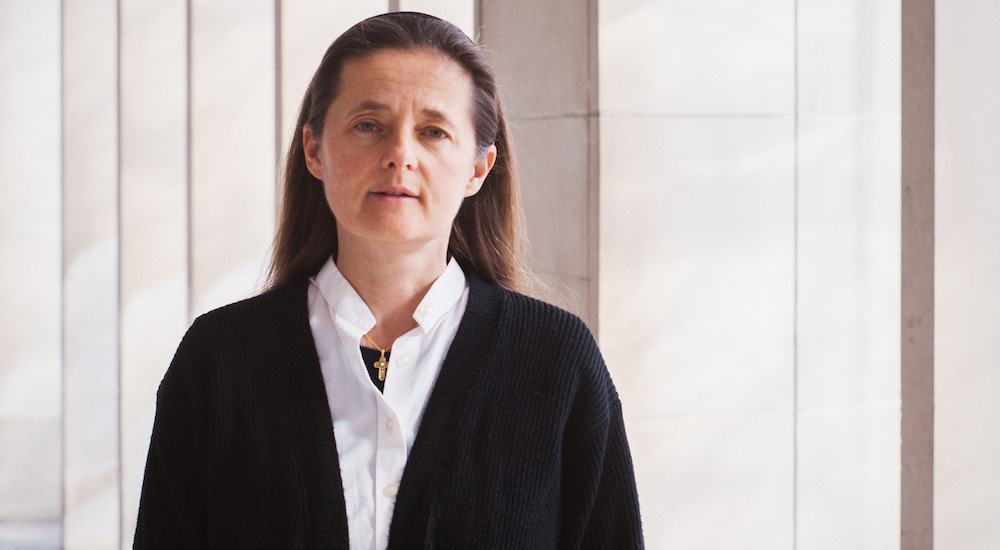One of the last places you might expect to find an Anglican priest is at a Line 9 public awareness event, with her head chained to a front-loader. Yet Andrea Budgey, chaplain at Trinity College, spent 12 hours on December 3, 2013 in just such a situation in order to halt the reversal of Line 9, a pipeline owned by Alberta energy delivery company Enbridge. Line 9 carries 240,000 barrels of oil from Montréal to Sarnia per day. Enbridge has obtained approval to reverse the flow of oil along Line 9A, the length of pipeline that runs from Sarnia to North Westover and passes underneath Toronto. The process would raise its capacity to 300,000 barrels per day. Budgey believes that Line 9 poses a significant risk to the nine million people who live above it, including the First Nations community.
The Varsity: You’ve been involved in activism for a long time. Why do you feel strongly about this particular issue?
Andrea Budgey: As a preface, I should say that activism is not a part of my every day university scope — I did this on my day off — but it’s very much a part of my personal faith. Now, I’m concerned about the reckless waste of resources, especially in our society. The tar sands are an egregious example of a dangerous and expensive resource. There are a huge number of safety issues in reversing the pipeline; diluted bitumen is crude, and not something people would want running underneath the streets of Toronto if they knew about it. I live in the Black Creek Ravine [along the pipeline’s route], and I can picture very vividly the consequences of an oil spill. You know, the pipeline goes through land that has never been ceded by the First Nations community and their concerns are completely disregarded by Enbridge. At the action in early December, there were First Nations women there too, to represent their concerns.
TV: Have you seen the community rallying to voice their concerns?
AB: I wouldn’t describe it as a rally — it’s conscious-raising action. Many of the neighbours didn’t know what was going on — they aren’t ignorant because there were meetings held before, but there are details that people don’t know. The National Energy Board (NEB) has still not yet issued an approval for Line 9B [the portion of the pipeline that runs from Westover to Montreal], so if Enbridge doesn’t get the approval, that’ll cancel the whole thing. I think Enbridge is acting in bad faith, and that it’s important to inform the community. Everyone is waiting for the NEB’s decision, and unfortunately, we’re not terribly confident that it will deny Enbridge’s application. If this happens, then it becomes necessary to move into other spheres of activity where the opposition has to be politically directed.
TV: Do you see yourself engaging in these politically-driven activities? From where will they be directed?
AB: I hope so. Direction should come from the First Nations community, whose concerns have been ignored. I see myself in a supporting role; I’m not a front planner. It’s important to let them and their specific concerns speak because their whole community is affected by this company’s activities on their unceded land. There’s a big overlap between the treatment of the land and the relationship between the First Nations community and the federal government; so, in that way activism for the First Nations community is a benefit to all.
TV: You were very clear earlier that your role as a chaplain is separate from your activism, but that activism is a part of your personal faith. How do you balance the two? What is the relationship between them like for you?
AB: My activism is separate from my faith, but Christians — and certainly Anglicans — have a responsibility to care for creation. Caring for the Earth is central to our gratitude — central to our hope, as it’s the planet that we share. Religion is not about “the pie in the sky when you die,” and protecting this world is fundamental to our own understanding of ourselves as created beings with responsibility for creation. As for the balance, I don’t think activism and my role as chaplain are in conflict. My activities are a personal choice and not a part of college policy or on institutional time.
TV: But there are student environment groups here at U of T. Would you be interested in engaging with them?
AB: There is an environment club here [at Trinity], and I’d love to have a more active conversation with them about political concerns and grassroots consciousness. They have already made progress with the solar panels and the water conservation challenge; these are important, but these are a group of students who will go on to have significant public impact — and the more they think, the better. Any kind of environmental-raising consciousness is a struggle because people have very busy lives, but I do have some hope that they are getting better at these issues. I hope we get better fast enough.


